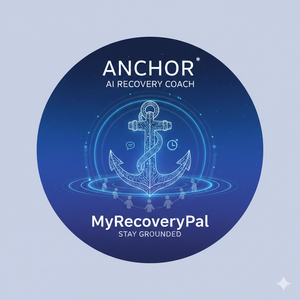
“Just don’t drink today.” “But I don’t know how to handle these emotions sober.”
“Do the next right thing.” “But I don’t even know what that is anymore.”
“Call your sponsor.” “But I don’t want to bother them.”
These two words become a prison for anyone struggling with addiction, anxiety, depression, or any life challenge. They’re the soundtrack to staying stuck rather than moving forward. And here’s what I’ve learned: the “But I…” syndrome isn’t unique to addiction. It’s the universal human response to fear, change, and growth.
Ready to push past your own “But I…” moments? My recovery journal can help you identify and overcome the mental barriers holding you back in your journey.
Moses Had the Original “But I…” Moment
When God appeared to Moses in that burning bush and told him to go speak to Pharaoh, Moses didn’t say “Yes, Lord!” He said, “But I am slow of speech and tongue.” Later, he literally begged God to send someone else. The man who would part the Red Sea and lead millions to freedom started with “But I can’t speak well.”
Sound familiar? How many times have we been asked to do something that could change our lives — go to that first meeting, make that amends, apply for that job — and responded with our own version of Moses’s excuse?
God’s response to Moses wasn’t to remove the challenge. He didn’t suddenly make Moses eloquent. Instead, He said, “I will be with you.” The task remained the same. The fear remained real. But Moses went anyway.
Peter’s “But I…” on the Water
Remember when Peter walked on water? We focus on his faith to step out of the boat, but I’m more interested in what happened next. The wind picked up, and Peter immediately shifted from “I can walk to Jesus” to “But I’m sinking!”
That’s recovery in a nutshell. We take that brave first step — we put down the bottle, we walk into the meeting, we start therapy. Then life hits us with wind and waves, and suddenly we’re drowning in “But I can’t handle this sober” or “But I’m too damaged” or “But I’ve failed before.”
Jesus didn’t lecture Peter about his doubt. He reached out and caught him. But here’s the key: Peter had to get out of the boat first. His “But I…” came after he’d already taken action.
The Disciples’ “But We Only Have…”
When Jesus told his disciples to feed 5,000 people, they responded with the ancient equivalent of “But I…”: “But we only have five loaves and two fish.” They saw scarcity where Jesus saw abundance. They saw impossibility where He saw opportunity.
In early recovery, I lived in that scarcity mindset. “But I only have 24 hours sober.” “But I only know how to cope by drinking.” “But I only have this shame and guilt to offer.” I couldn’t see that my five loaves and two fish — my willingness to try and the support of my daughter — could be multiplied into something miraculous.
From “But I…” to “I Can…”
The shift doesn’t happen overnight. Moses didn’t suddenly become confident. Peter didn’t stop doubting. The disciples didn’t immediately understand abundance. But they all did one crucial thing: they acted despite their “But I…”
In those early months living at my mom’s house with my 16-year-old daughter, every morning felt like a “But I…” moment. But I can’t face another day of guilt. But I don’t know how to be a sober father. But I’m too broken to rebuild.
The change came not from eliminating these thoughts but from adding three letters: “try.”
“But I can’t face another day of guilt” became “But I can try to face this hour.” “But I don’t know how to be a sober father” became “But I can try to be present today.” “But I’m too broken to rebuild” became “But I can try to pick up one piece.”
Your Next “But I…” Moment
Here’s what nobody tells you about transformation: it’s not built on the big heroic moments. It’s built on the thousand tiny times you chose “I can try” over “But I can’t.”
Your next “But I…” moment might come today. It might be as simple as:
- “But I don’t want to get out of bed” → “But I can try to sit up”
- “But I can’t face that meeting” → “But I can try to walk through the door”
- “But I can’t forgive myself” → “But I can try to be gentle with myself today”
Moses thought he couldn’t speak, but he became the voice of liberation. Peter thought he was drowning, but he became the rock of the church. The disciples thought they didn’t have enough, but they participated in a miracle.
They all started with “But I…” They all moved forward anyway.
The Compound Effect of “I Can Try”
That’s how you stack sober days into years — not through perfection, but through showing up despite your “But I…” thoughts. That’s how you manage anxiety — not by eliminating fear, but by acting with it. That’s how you move from a life stuck in patterns to a life you never imagined — one tiny “I can try” at a time.
When I chair my noon meeting now, I still hear “But I…” from newcomers. I also hear it from old-timers. Hell, I hear it from myself. The difference is that now I recognize it for what it is: not a stop sign, but a yellow light. A moment to acknowledge the fear, take a breath, and move forward anyway.
Your story doesn’t end with “But I…” It begins with “But I can try.”
And that three-letter addition? That’s where miracles start.
Ryan chairs a noon AA meeting in Springfield and writes daily about recovery at Normalize Sobriety. Transform your “But I…” moments into breakthrough moments with his recovery journal on Amazon. Because every miracle starts with trying.


Comments (0)
Login to leave a comment.
No comments yet. Be the first to share your thoughts!